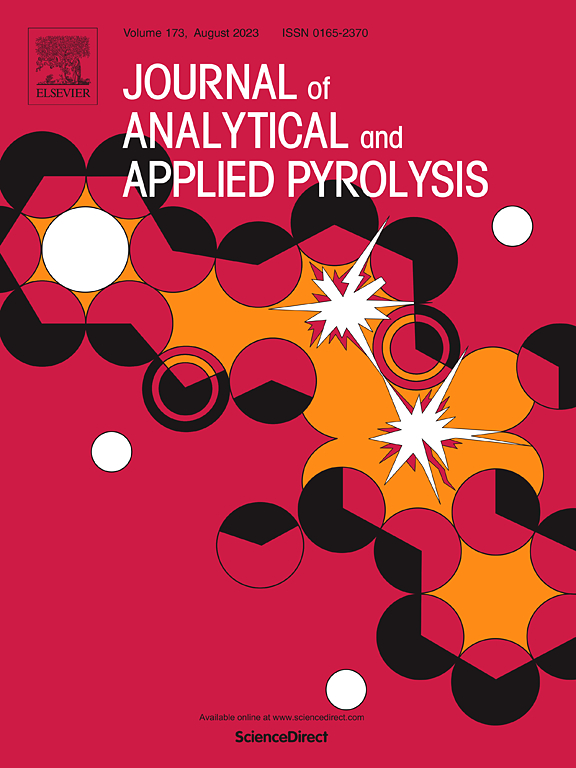NiO-Fe2O3改性稻壳炭催化剂用于重油低温水热裂化
IF 6.2
2区 化学
Q1 CHEMISTRY, ANALYTICAL
引用次数: 0
摘要
重油具有高粘度的特点。研究高效、环保的降粘方法对全球稠油资源的可持续利用至关重要。本研究以koh改性稻壳炭(KRHC)为原料,通过浸渍法制备了NiO/Fe2O3-KRHC生物炭基催化剂。采用多种表征技术对RHC、KRHC和催化剂进行了分析。结果表明,经KOH改性后,稻壳炭的孔隙结构丰度增加。该催化剂具有良好的热稳定性和强酸性。通过催化降粘实验对催化剂活性进行了评价。NiO/Fe2O3-KRHC催化剂在185 ~ 245℃范围内具有良好的降粘效果。在230℃下,NiO/Fe2O3-KRHC催化剂的粘度降低了81.81 %。催化剂的最佳反应时间为24 h。生物炭基催化剂在中低温条件下具有优异的降粘性能。过渡金属氧化物与重油分子的接触促进了配位配合物的形成,导致分子链和氢键断裂。其中,C-S键的断裂是导致粘度降低的关键原因。这些研究结果将为应用生物质基催化剂降低稠油粘度提供参考。本文章由计算机程序翻译,如有差异,请以英文原文为准。
The NiO-Fe2O3 modified rice husk char catalysts for catalytic hydrothermal cracking of heavy oil at low temperatures
Heavy oil has the characteristic of high viscosity. Research on efficient and eco-friendly methods to reduce viscosity plays a crucial role in the sustainable utilization of global heavy oil resources. In this study, a biochar-based catalyst, NiO/Fe2O3-KRHC, was successfully prepared using KOH-modified rice husk char (KRHC) via the impregnation method. The RHC, KRHC, and catalyst were analyzed using multiple characterization techniques. The findings showed an increased abundance in the pore structure of the rice husk char after modification with KOH. The catalyst exhibited good thermal stability and strong acid sites. The catalyst activity was evaluated through the catalytic viscosity reduction experiment. The NiO/Fe2O3-KRHC catalyst demonstrated a satisfactory viscosity reduction effect at 185–245 ℃. Specifically, the NiO/Fe2O3-KRHC catalyst reduced the viscosity by 81.81 % at 230 ℃. The optimal reaction time for the catalyst was 24 h. The biochar-based catalyst demonstrated excellent performance in reducing viscosity at low to medium temperatures. The contact between transition metal oxides and heavy oil molecules facilitated the formation of coordination complexes, leading to the breakage of molecular chains and hydrogen bonds. Among them, the breakage of C-S bonds was the key reason for the reduction of viscosity. These findings will provide a reference for applying biomass-based catalysts to reduce the viscosity of heavy oil.
求助全文
通过发布文献求助,成功后即可免费获取论文全文。
去求助
来源期刊
CiteScore
9.10
自引率
11.70%
发文量
340
审稿时长
44 days
期刊介绍:
The Journal of Analytical and Applied Pyrolysis (JAAP) is devoted to the publication of papers dealing with innovative applications of pyrolysis processes, the characterization of products related to pyrolysis reactions, and investigations of reaction mechanism. To be considered by JAAP, a manuscript should present significant progress in these topics. The novelty must be satisfactorily argued in the cover letter. A manuscript with a cover letter to the editor not addressing the novelty is likely to be rejected without review.

 求助内容:
求助内容: 应助结果提醒方式:
应助结果提醒方式:


